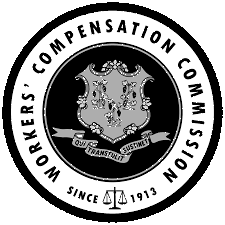Sec. 28-14.
Compensation for death, disability or injury.
Connecticut General Statute as amended to January 1, 2021, regarding
Compensation Benefits for Auxiliary Fire, Police and Civil Preparedness Personnel and Volunteers That Conduct Homeland Security
Sec. 28-14. Compensation for death, disability or injury. (a) All members of any auxiliary police, auxiliary fire or other civil preparedness force shall be compensated for death, disability or injury incurred while in training for or on civil preparedness duty under the provisions of this chapter as follows: (1) Employees of the state, municipalities or political subdivisions of the state who are members of civil preparedness forces and for whom such compensation is provided by any provision of existing law shall be construed to be acting within the scope of their employment while in training for or engaged in civil preparedness duties and shall be compensated in accordance with the provisions of chapter 568, section 5-142 or any special act concerning compensation to certain employees: Regular policemen or firemen who are members of the State Police Association or the State Firemen's Association shall be construed to be acting within the scope of their employment while in training for or engaged in civil preparedness duties and shall be entitled to all the benefits as members of said associations; (2) any persons who are engaged in regular employment apart and separate from their duties as members of civil preparedness forces and for whom such compensation is not so provided shall, while in training for or engaged in civil preparedness duty under the provisions of this chapter, be construed to be employees of the state for the purposes of chapter 568 and section 5-142 and shall be compensated by the state in accordance with the provisions of said chapter 568 and section 5-142. For the purposes of this subsection, the average weekly wage, as said term is used in said chapter 568, shall be ascertained by dividing the total wages received by the injured person from all employers during the twenty-six calendar weeks immediately preceding that in which he was injured by the number of calendar weeks during which, or any portion of which, such person was actually employed, but, in making such computation, absence for seven consecutive calendar days, though not in the same calendar week, shall be considered as absence for a calendar week. For the purpose of determining the amount of compensation to be paid in the case of a minor under the age of eighteen years who has sustained an injury entitling him to compensation for total or partial incapacity for a period of fifty-two or more weeks, or to specific indemnity for any of the injuries enumerated in section 31-308, fifty per cent may be added to the average weekly wage. When the injured person is a trainee or apprentice receiving a subsistence allowance from the United States because of war service, such allowance shall be added to his actual earnings in determining the average weekly wage. All claims under this subsection shall be determined according to the procedures specified in chapter 568. For the purpose of this subsection, no person shall be considered regularly employed unless his total employment previous to injury as provided above exceeds a net period of thirteen calendar weeks; (3) any member of the civil preparedness forces not covered in subdivision (1) or (2) hereof, for disability or injury incurred while in training or on civil preparedness duty under the provisions of this chapter, or his dependents in the event of his death while in such training or on such civil preparedness duty, shall be compensated by the state in such amount as is determined to be just and reasonable by the compensation commissioner for the district in which such member resides or resided, provided a claim shall be made in writing to the commissioner for the district in which the claimant resides within one year from the date of injury or death. In no event shall such amount exceed the maximum payments provided in chapter 568 or be less than the minimum wage as determined by the Labor Commissioner for a period of recovery from injury to be determined by such compensation commissioner.
(b) Any sums payable under any Act of Congress or other federal program as compensation for death, disability or injury of civil preparedness workers shall be deducted from the amount payable under subsection (a) of this section.
(June, 1951, S. 1918d; 1959, P.A. 65, S. 3; P.A. 73-544, S. 14; P.A. 78-324, S. 1.)
History: 1959 act included auxiliary police and fire forces in section; P.A. 73-544 substituted "civil preparedness" for "civil defense" throughout; P.A. 78-324 provided that compensation be no less than minimum wage for period of recovery.

